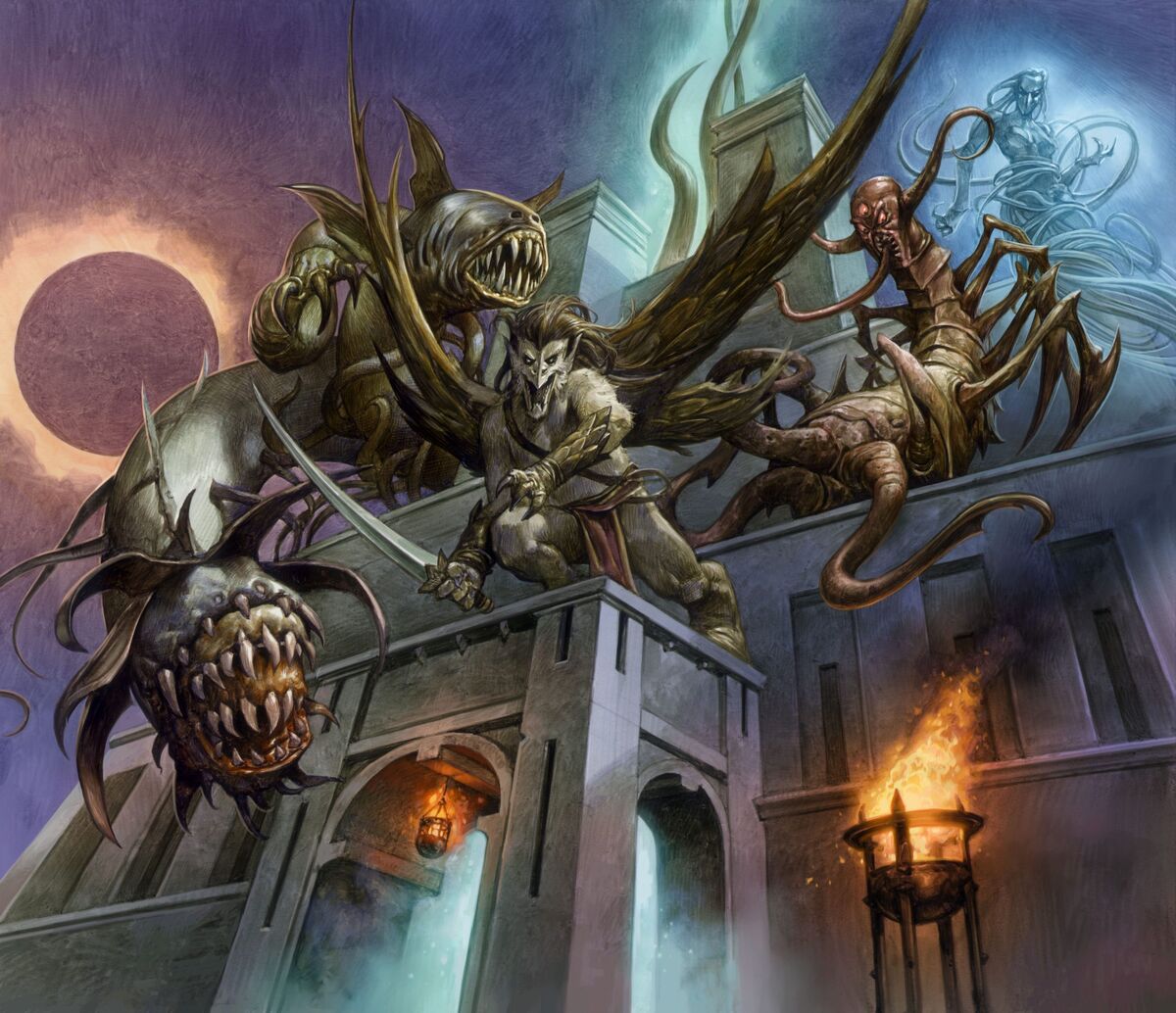Chaosmancer
Legend
Statblocks =/= creature. But since you will probably want proof, I will provide it to you. Page 6 of the monster manual. Dragon is a type of creature. Not red dragon. Not blue dragon. Dragon.
The statblock for wolf is just for that kind of wolf.
Sorry, no moving the goalposts mid-discussion. I didn't ask for a creature type, I asked for a statblock. I haven't been discussing "creatures" I've been discussing statblocks. You don't get to just decide that you can't argue that point and try to argue a different point.
When I said "wolf" I meant "Wolf" not "Winter Wolf" not "Fire Wolf" not "Wisp Wolf" not "Blade Wolf". I was talking about the statblock "Wolf" which represents... normal wolves.
Also, if you want to go down the creature type rabbit hole, I note there is no "wolf" creature type, so that wouldn't apply either.
No, you can't just assume that the Balor is like the other demon, because you don't know that demons have these things in common unless you learn it somehow. There's nothing that a Chasme and Balor have in common by looking at them other than they live on the Abyss. Hell, tons and tons of non-demon creatures also live on the Abyss, so unless you have the knowledge, you won't even know a Balor is a demon and not some other denizen of that place.
Why can't I? What right do you have to tell me what I can and cannot assume?
As I said, this isn't about "what does your character know" this is about "What Maxperson will allow you to think". Because there is no other reason to demand that I not take the knowledge I have about a demon and apply it to another demon. Because, frankly, if my DM is putting me up against a Balor, and not telling us what this thing is... I question what is going on in the campaign. Why is a CR 19 final boss monster so unimportant to the campaign that we don't know anything about it.
Also, I have no idea what "tons and tons" of creatures you are talking about. Very few entries I can find in the monster books for anything non-demonic that lives in the Abyss. They all seem to be... fiends, with the same sort of resistances and immunities.
It can also lead to using the Magic Weapon spell instead of something else someone might have cast, or using a magical class ability instead of swinging, or a lot of other things.
And if they don't have a niche spell like Magic Weapon prepared? What do we do then? Because honestly, I've never seen anyone prepare the spell unless they know BEFORE the fight that they will be facing enemies resistant to non-magical weapons and there is ONE non-magical wielding ally who they can buff to be effective. And that means finding this out BEFORE the fight, so the Hunter's Lore ability would only tell you after the fight is over, at which point you already knew without it.
Very few melee classes who would use non-magical weapons primarily who have effective magical damage dealing options. And generally, if they do have something like that, it is a ranged option they'd be using before getting into melee, and once in melee they'd go back to using their non-magical weapons.
Yes. Players know. PCs don't have any access to numbers.
Magic is in fiction, as are the PCs. The PCs cannot know the numbers.
So why can't the player use an ability that will give them access to the numbers, and then have the PC translate it into something that makes sense to them without it having to be the number? If I can look at someone with plate mail and translate that to 18 AC, why can't I use magic to determine that something has 16 AC? It is literally the exact same thing. The PCs may not learn "you need to roll a 10 on a twenty-sided dice" but they learn information that translates to that, such as "it's hide is as tough as chain mail" which tells me it has an AC of 16. This is really not difficult.
The paladin makes no such choice. The player is the one who makes that choice. Narratively, the paladin just decided to smite on that attack.
Splitting hairs so fine that no one ever cares about them. The paladin didn't make their choice, they just so happened to make a choice that looked identical but keeps the swiss cheese 4th wall from getting a hole poked in it. That is pointless semantics.




